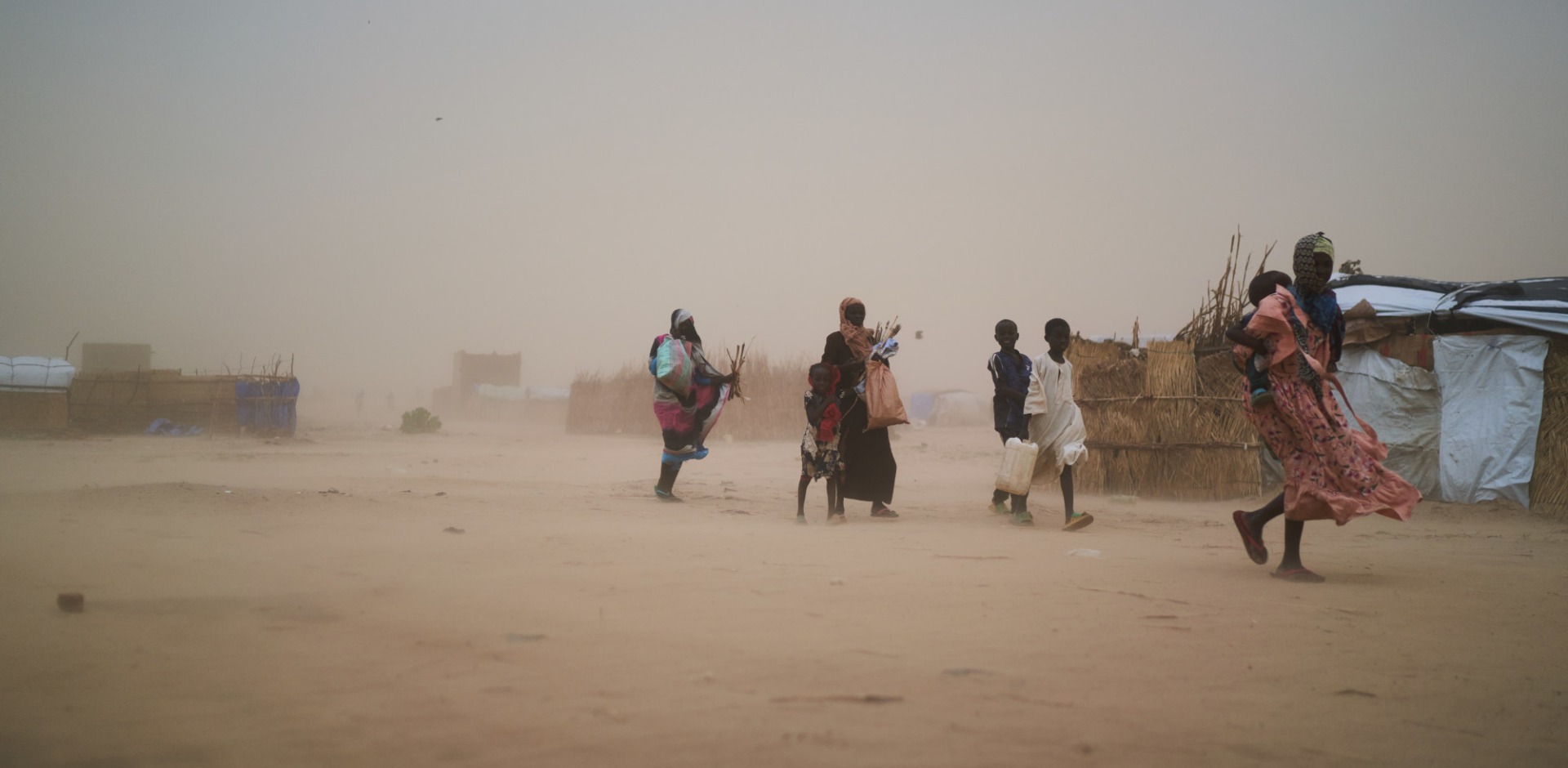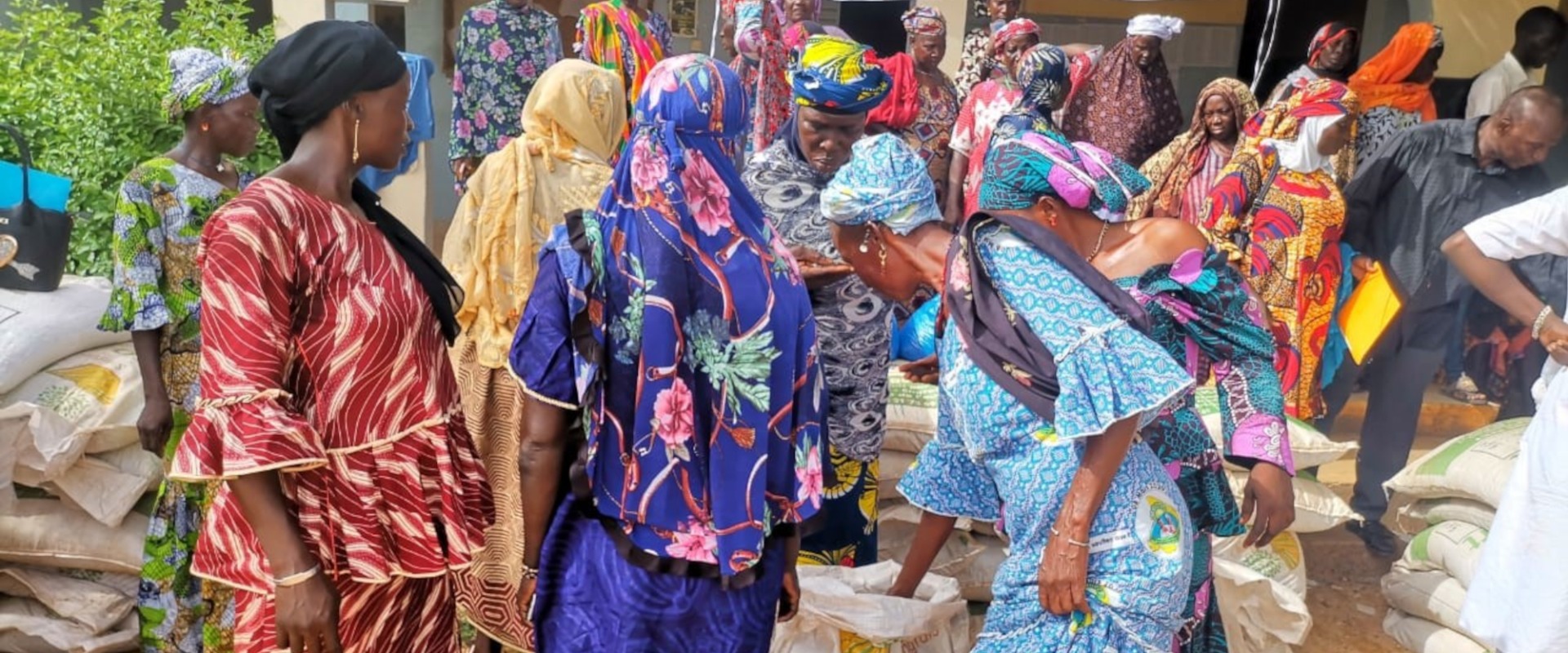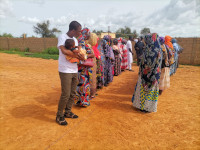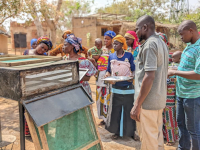
FAMINE IN SUDAN

Access to land, climate-appropriate agricultural inputs and environmentally friendly production techniques are necessary to ensure sufficient food production with good nutritional value. Malian women play an essential role in agriculture, particularly in producing, processing, and selling market gardening and small-scale livestock products. However, efforts to improve the status of women are still needed, particularly in rural areas, so that they can have access to the resources needed for sustainable, climate-resilient agricultural production.
The Integrated Fight Against Chronic Malnutrition in Mali project, funded by Global Affairs Canada, helps Malian women increase their autonomy, decision-making authority, and economic resilience- which is crucial for reducing chronic malnutrition in households and communities.
This project targets three major underlying causes of chronic malnutrition: access to adequate care, a healthy environment, and adequate nutrition. In the regions of Kayes, Kita and Sikasso, these barriers are perpetuated by gender inequalities affecting women and adolescent girls.
In southern Mali, market gardening and small livestock farming are often left to women. Because of a lack of knowledge, means, and decision-making power, they struggle to develop a profitable business and take advantage of their work to become independent. In addition, the lack of know-how pushes women and adolescent girls to sell the most nutritious foods, affecting their nutritional needs.
Our solution involves identifying technical training needs and promising agricultural sectors to increase the roles and engagement of women within these sectors. Women’s groups receive technical advice based on climate-smart agriculture principles. Training sessions are inclusive and consider the women’s education level so that we can provide accessible learning resources. Additionally, we advocate for women’s access to secure agricultural land, guaranteeing sustainability.
Work-sharing methods are created to combat the overload of work affecting women, and men are made aware of this problem through our advocacy work.
 Autonomous seed production, cultivation, irrigation techniques, and proper storage and processing are encouraged. For example, we teach row-sowing techniques that facilitate access to crops and make weeding easier, directly affecting soil aeration.
Autonomous seed production, cultivation, irrigation techniques, and proper storage and processing are encouraged. For example, we teach row-sowing techniques that facilitate access to crops and make weeding easier, directly affecting soil aeration.
The focus on new environmentally friendly cultivation techniques strengthens women’s knowledge in seed production, processing, storage, and conservation of crops. Ultimately, it helps them to process crops and preserve them for longer after harvest. Agronomists lead these training sessions from the Ministry of Agriculture and Action Against Hunger’s local partner in Mali, COFERSA.
 Mrs. Ami Diawara, President of the group of women of Bambela in the commune of Bangasssi, Kayes region, said, “These women have met expectations in their training, and the skills learned will help them to carry out their activities and provide for them.”
Mrs. Ami Diawara, President of the group of women of Bambela in the commune of Bangasssi, Kayes region, said, “These women have met expectations in their training, and the skills learned will help them to carry out their activities and provide for them.”
As part of the training, women also learn how to sell different products. They receive essential equipment such as solar dryers, pots, and basins to cook new recipes with high nutritional value. The excess nutritious food they produced can be sold at markets to other local women. This way, women can take advantage of locally available highly nutritious products while strengthening their economic opportunities!
 The Integrated Management of Chronic Malnutrition in Mali project, funded by Global Affairs Canada, aims to sustainably improve the nutritional status of children under five and women of reproductive age. The five-year project will address three major causes of chronic malnutrition: access to adequate care, a healthy environment and adequate nutrition.
The Integrated Management of Chronic Malnutrition in Mali project, funded by Global Affairs Canada, aims to sustainably improve the nutritional status of children under five and women of reproductive age. The five-year project will address three major causes of chronic malnutrition: access to adequate care, a healthy environment and adequate nutrition.
The Convergence of Rural Women for Food Sovereignty (COFERSA) is a Malian organization bringing together 36 rural women’s cooperatives. It works to increase the economic power, social and political status of its members spread across six regions of Mali. The COFERSA works in partnership with Action Against Hunger for the Integrated Fight Against Chronic Malnutrition in Mali . They are mobilized on all agricultural activities, because of their expertise in supporting women’s production cooperatives and marketing of local products with high nutritional value and advocacy for the empowerment of rural women in the project regions.
Join our community of supporters passionate about ending world hunger.